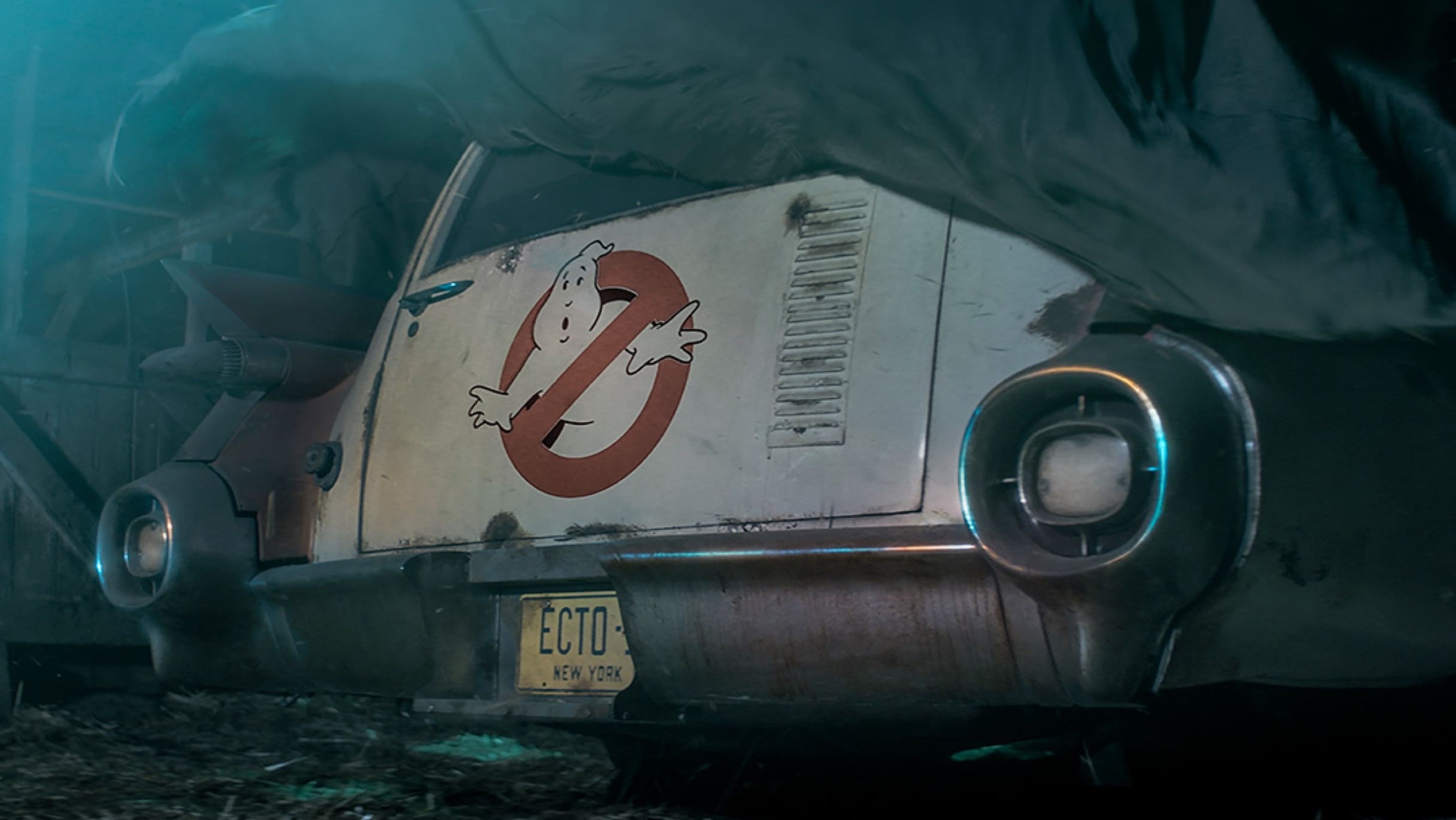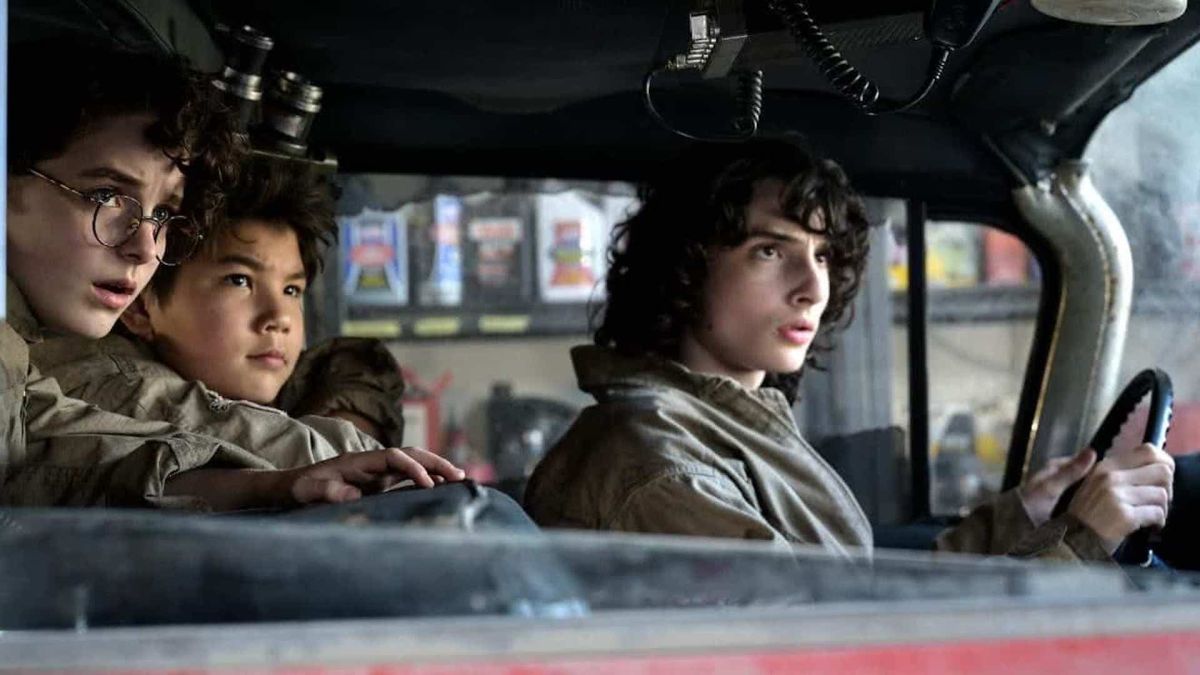What to Watch Verdict
'Ghostbusters: Afterlife' is a wrongheaded, shallow attempt at reviving a product of the 1980s for modern audiences.
Pros
- +
Jason Reitman is trying his best
Cons
- -
I hope you like references. No mystery. Just references to the - First movie
- -
Most of the comedy falls flat
- -
The self-seriousness of the mythos completely misunderstands the appeal of 'Ghostbusters'
It’s worth noting right up top that Ghostbusters: Afterlife is at least a competently made film. Director and co-writer Jason Reitman (Juno, Up in the Air) is a talented filmmaker in his own right and for what it’s worth, Afterlife is a coherent enough film that is trying to make something fun out of a checklist of studio mandates.
The latest foray into the Ghostbusters franchise isn’t a failure because it lacks creative talent — even if Reitman’s indie sensibilities aren’t necessarily suited to special effects spectacle and the plotting tends to hit the fast-forward button over vital details. Ghostbusters: Afterlife fails at a foundational level, trying to bring the nostalgia of Generation X into the era of Gen Z by mimicking other recent franchise successes — without recognizing what made those properties resonate. The most obvious comparison is to Stranger Things (they did, after all, cast its star Finn Wolfhard) as the action moves from urbanite New York City to middle-of-nowhere Oklahoma.
After their mysterious, reclusive grandfather dies, Trevor (Wolfhard) and Phoebe (Mckenna Grace) move with their mother (Carrie Coon) to fix up his property. Soon, the science-minded Phoebe discovers — with the help of her summer school teacher/seismologist/convenient ancient history buff/expository catchall/goofball friend Mr. Grooberson (Paul Rudd) — that there might be more to her grandfather than the weirdo everyone assumed him to be. In fact, there may be a threat in the nearby cliffs that he was aiming to protect the world from.
While Trevor aimlessly tools around town while trying to woo potential love interest, Lucky (Celeste O’Connor), Phoebe starts to discover the secrets buried in her grandfather’s home that speak to a nefarious history in the nearby town.
The problem is that the mystery itself isn’t a mystery at all, but rather an excuse to reveal references and iconography from the original 1984 film. The gimmick wears thin rather quickly as the shaky semblance of a conspiracy gives way to obvious cameos and merchandising opportunities. It has a backward-facing reverence for the past that doesn’t succeed in updating the franchise for its new target audience but reminds their parents of the feeling of being a kid who fell in love with an adult horror-comedy.

More than anything, Ghostbusters: Afterlife wishes it was The Force Awakens, but Star Wars has enough mythic gravitas and cultural cachet that they can get away with remixing previous adventures as a test run for further sequels. In contrast, the original Ghostbusters is a comedy film and the convoluted mythology of the Gatekeeper, the Keymaster and Gozer was largely a gag at the expense of its fantasy world-building contemporaries. Playing it with a straight face only serves to suck the fun from the premise. The film can't even be bothered to build its universe enough to explain how proof of ghosts has or hasn’t changed the world in the intervening years.
Characters are aware of the events of the first film and can even look up YouTube videos of it, but there’s a bizarre undercurrent of doubt that those events even happened that only gets further confused when nobody bats a surprised eye once ghosts actually do show up.
This self-seriousness only further diminishes the film’s flaccid attempts at comedy. A self-proclaimed podcaster (Logan Kim) says he calls himself Podcast because has a podcast. This is the riveting level of joke that the film expects you to be on board for. Even when a line of dialogue is theoretically funny, there’s no sense of comic timing or pacing to allow the joke to land. There’s a general feeling that the film is rushing to the next piece of eye-grabbing nostalgia bait, with jokes primarily being a concession to obligation, propped up by a Rob Simonson score working overtime to convince you that you are, indeed, having fun.
To be fair to the actors, they are working well with the material given to them. Paul Rudd still comes across as goofily charming, while Mckenna Grace does manage to slip in some good anti-comedy gags. It’s also a nice touch for the film to hint that Phoebe and Egon Spengler are neurodivergent characters, something that I hope provides some measure of affirmation for those in the autistic community looking for positive representation.
However, almost any goodwill that Afterlife has saved up is immediately spent in a finale that is as trite as it is predictable. It’s aiming for heartwarming, but it ends up being — if you’ll pardon the pun — downright ghoulish in execution. Without so much as a denouement after a half-hearted pull at the heartstrings, the credits begin to roll — leaving one to ponder the Fisher-Price plastic hamburger that was just fed to us. To some, that facsimile of a meal might be sustaining, as the mere memory of a real hamburger can suitably disguise the taste of air and processed plastic, but it's hard to deny the level of self-delusion that requires.
While I generally find it disagreeable to decry a single film as being endemic of problems with the film industry as a whole, Ghostbusters: Afterlife is such a wrongheaded, shallow attempt at reviving a product of the 1980s for modern audiences that it’s hard not to see it as a symptom of a film studio grasping at straws, milking its intellectual property for every bit of self-referential profit. The pop-cultural ouroboros devours its own tail, leaving no new stories to be told as it devours the past. There is no future. There is only Zuul.
Ghostbusters: Afterlife opens in theaters on Nov. 19.
Leigh Monson has been a professional film critic and writer for six years, with bylines at Birth.Movies.Death., SlashFilm and Polygon. Attorney by day, cinephile by night and delicious snack by mid-afternoon, Leigh loves queer cinema and deconstructing genre tropes. If you like insights into recent films and love stupid puns, you can follow them on Twitter.











